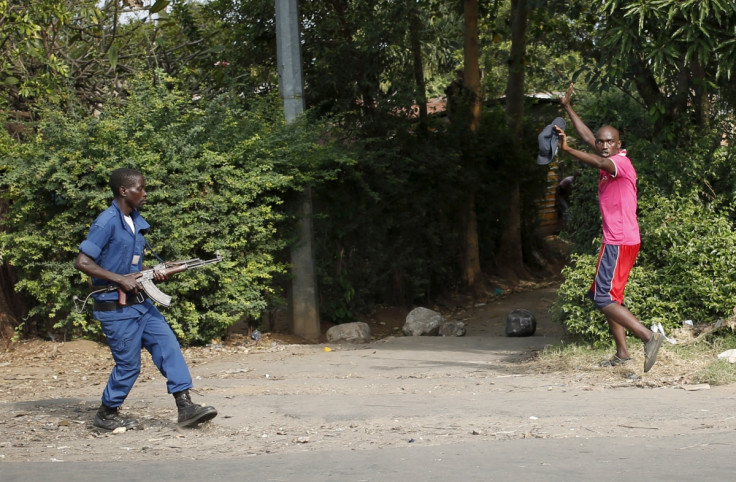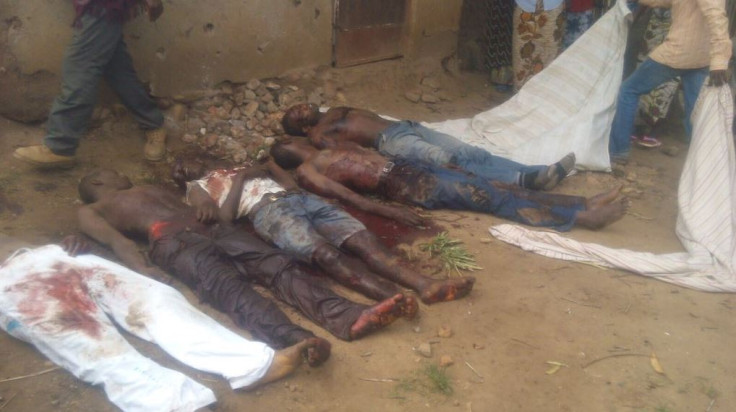Burundi: Witnesses say police shot prisoners at point-blank range in Cibitoke district

Five young men have allegedly been executed by police in Burundi's capital Bujumbura following grenade attacks. Meanwhile, the United Nations (UN) is warning of the risk of violence degenerating into genocide on the the first International Day dedicated to genocide awareness (9 December).
There have been growing fears that the nation could be sliding into a Rwandan-style genocide after a number of calls for ethnic-based massacres in Burundi have emerged on social media over recent weeks – orders the embattled authorities and the opposition have condemned.
Scores have died since April when President Pierre Nkurunziza launched a controversial bid to prolong his term in office. A wave of assassinations in the capital, Bujumbura, have targeted politicians of all parties, military officers, human rights defenders. Corpses appear on a near-daily basis. The UN has cited at least 240 deaths since April, but the real toll is likely much higher.
Five 'prisoners' executed in Cibitoke

Five men – aged between 20 and 35 – were allegedly shot at point-blank range by the Burundian police on the 15th Avenue in the district of Cibitoke in north Bujumbura, an area clashing with the regime. The area where the men were killed is situated across the road from the district of Mutakura.
"These five people were in separate houses on the same plot, and the police came in saying these young men apparently threw grenades last night," a local reporter told IBTimes UK. "It's at that moment that the policemen invaded the plot, and executed them outside, on the street."
"It's visibly a carnage", the journalist said, adding that there were too many bullet cases on the ground next to the bodies to accurately count them. "They must have been killed at point-blank."
Local residents confirmed they saw "policemen" but it is still unclear whether the forces were from the riot police, or forces belonging to the API Unit (Appui pour la Protection des Institutions), the Police Unit in charge of protecting state institutions described by residents as "the most dangerous one".
The national broadcaster RTNB reported that two of the victims were among the 97 protesters opposing Nkurunziza who were released from Mpimba central prison on Tuesday (8 December) by the Burundian government.
Bullet cartridges from slaughter of 5 youths in #Mutakura this morning. #Burundi pic.twitter.com/nlk7OTHFCI
— joanne mariner (@jgmariner) December 9, 2015Update 14:58:
Burundi deputy police spokesman Pierre Nkurikiye told the AFP: "The five people killed Wednesday were part of a group of insurgents who threw, early in the morning, two grenades towards policemen in the district of Cibitoke, injuring two - one critically."
He added: "When the criminals threw a third grenade, policemen retaliated and killed five (insurgents), as others managed to flee."
UN warns of 'possible' genocide
The UN warned on Tuesday (8 December) against the risk of violence in the small African nation degenerating into genocide. "I'm not saying that genocide will take place tomorrow in Burundi," said Adama Dieng, UN Secretary-General's special adviser for the prevention of genocide. He added that there exists a "serious risk" that violence could lead to a civil war "and then everything is possible".
Dieng explained how he was "very concerned about the manipulation of ethnicity by both the government and the opposition" in order to draw Hutu and Tutsi against each other. The adviser urged both Burundians and the international community to remember that "Burundi's history is a history of violence", referring to the 1995-2003 civil war in which 300,000 died. "It is time to act," Dieng said, adding "we can not solve the problem by sending soldiers on the spot."
The European Union and UN still hope to promote political dialogue through its envoy Jamal Benomar. The Security Council in September adopted a French-inspired resolution authorising the UN to eventually deploy peacekeepers in Burundi.
According to the UN: "In September 2015, the United Nations General Assembly established 9 December as the International Day of Commemoration and Dignity of the Victims of the Crime of Genocide and of the Prevention of this Crime. The 9th of December is the anniversary of the adoption of the 1948 Convention on the Prevention and Punishment of the Crime of Genocide (the "Genocide Convention")."
Burundi up close: Check out our Flipboard magazine
© Copyright IBTimes 2025. All rights reserved.






















